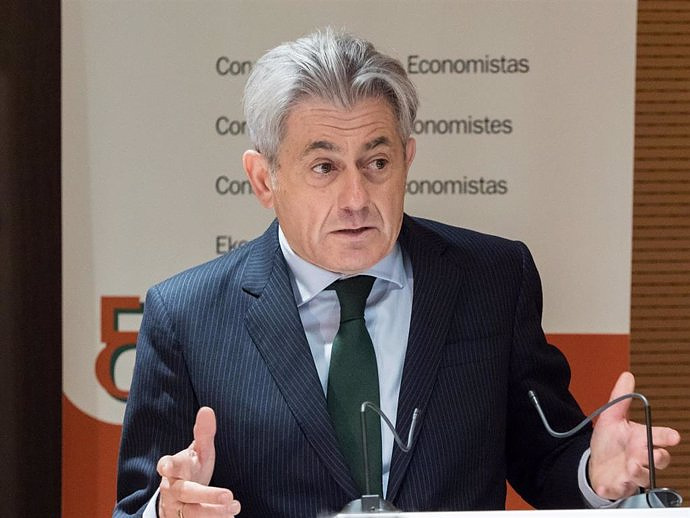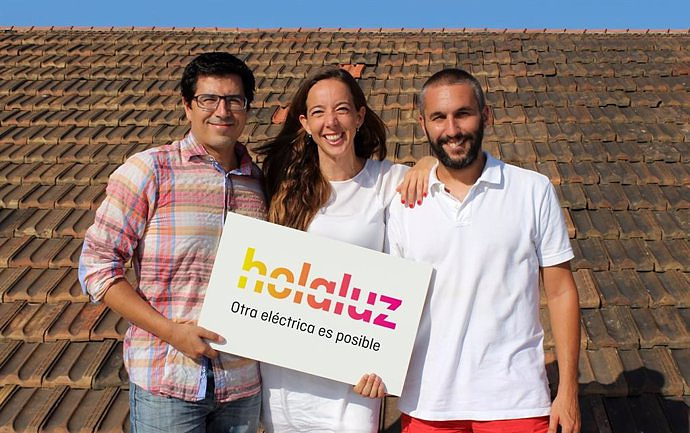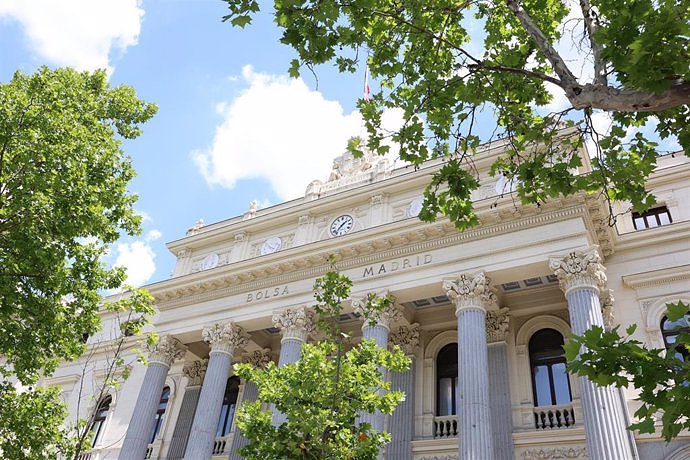The country is going through the worst political crisis since the end of the war in 1995
MADRID, 1 Oct. (EUROPA PRESS) -
The population of Bosnia and Herzegovina is called to the polls this Sunday for presidential, parliamentary and local elections marked by an uptick in nationalist rhetoric that has raised the specter of the war that shook the European country between 1992 and 1995.
At stake are seats in the tripartite Bosnian Presidency --composed of a Bosniak, a Bosnian Serb and a Bosnian Croat--, the Bosnian Parliamentary Assembly, the legislative bodies of the Federation and the Republika Srpska --the two entities that make up the country- -, the Presidency and Vice-Presidency of the Republika Srpska and ten cantonal assemblies in the Federation.
The complex voting process thus puts 518 positions on the table, with more than 7,200 accumulated candidates, 43 percent of whom are women. Thus, the candidates compete in the ranks of 90 parties and 38 coalitions, while 17 do so as independents, according to the International Foundation for Electoral Systems (IFES).
The elections will take place in the midst of the worst political crisis in the country since the end of the war in 1995, especially due to the declared intention of the Bosnian Serb leader to promote a separatist process from the Republika Srpska and the failure of the negotiations to modify the electoral law, something advocated by the Bosnian Croats and opposed by the Bosniaks.
The war in Bosnia came to an end in 1995 with the signing of the Dayton Accords, which established a Constitution that made up two autonomous entities - the Federation, with a Bosniak and Bosnian Croat majority, and the Republika Srpska, with a Bosnian Serb majority - and three peoples constituents. The situation led to a weakened central State that gave important powers to the entities and that ended up leading to political blockades due to disagreement between the different communities regarding decision-making.
Thus, the national government was structured with limited powers, while the entities have authority in matters of defense, security, justice, taxes, education and health, among others, which left a kind of almost empty shell in Sarajevo that had to be complemented with the creation in 1997 of the Peace Implementation Council, headed by a High Representative and in charge of supervising the materialization of the Dayton Agreements.
The situation added to what some perceive as foreign interference in Bosnian political affairs, especially since the High Representative is not directly elected. In fact, between 2011 and 2021 he stopped exercising his powers, although in July of that year Valentin Inzko, who then held the position, announced a law with sanctions for those who deny the genocide, something that especially affects the massacres in 1995 in Srebrenica, drawing criticism from Bosnian Serbs.
Inzko's initiative led to a drastic rise in tensions and a political blockade by the Bosnian Serbs, who reactivated their efforts to try to secede from the Republika Srpska, in the face of international concern and the suspicion of the other members of Bosnia and Herzegovina. Herzegovinian.
Added to this is the increase in differences between Bosniaks -Bosnian Muslims- and Croats in relation to the electoral law, which has also damaged governance in the Federation and at the national level, in the framework of a power struggle over the control of the country's agencies, according to the 'think tank' International Crisis Group.
Christian Schmidt, now the High Representative, then planned a proposal that includes changes to the Bosnian constitution and electoral law, as well as a package of measures to fight electoral fraud. However, his proposal was met with a harsh response from Bosniak leaders, including Democratic Action Party chairman Bakit Izetbegovic, who directly alluded to the risk of a new civil war breaking out.
In this context, the nationalist Croatian Democratic Union of Bosnia and Herzegovina (HDZ) has come to point out in a thinly veiled way that it could refuse to collaborate with the authorities that come out of the polls, while the campaign has also been affected by the war in Ukraine, unleashed in February by the invasion order of Russian President Vladimir Putin, in a display of regional alliances and Moscow's ties in the area.
Thus, the Bosnian Serb leader, Milorad Dodik, has been critical of Western countries and has publicly supported Putin's policies in the Balkans, where he has Serbia as his main ally. "We cannot continue in Bosnia and Herzegovina," he recently argued, before denouncing that the country "is a place that constantly represses" Bosnian Serbs. Dodik thus stated that the conditions for a possible split "are being created" and added that "Europe is in more and more trouble."
The elections will have few new faces on the ballot, as the main candidates are known to the Bosnian population, which also shows a low level of trust in the integrity and fairness of the country's electoral processes and institutions, according to a survey by the Organization for Security and Cooperation in Europe (OSCE).
Thus, among the Bosnian candidates for one of the posts in the tripartite Presidency are Izetbegovic --who aspires to a third term after four years out of office--, Denis Bezirovic and Mirsad Hadzikadic; while Zeljko Komsic is seeking a fourth term among the Bosnian Croat representatives, with Borjana Kristo as the main rival.
In the case of the Bosnian Serb post, the main favorite is Zeljka Cvijanovic, Dodik's ally and current president of the Republika Srpska. Dodic, who thus leaves the Bosnian Presidency, aspires to exchange positions with Cvijanovic.
For his part, the president of the electoral commission, Suad Arnautovic, has announced that, for the first time in history, the organization's activities will be broadcast through a special channel to try to improve transparency, as reported by the newspaper Sarajevo Times.
The elections appear as a key point to determine the direction of the political crisis in Bosnia and Herzegovina, especially since Schmidt's proposal has been postponed until the new institutions are established so that they are responsible for applying any possible reforms.
Despite this, apathy is the general feeling among the population in the face of the political stalemate of recent years. "The problem in Bosnia is that only 50 percent of the people go to vote. It is the other half that contributes directly to the victory of nationalist parties," says Miran Kovacevic, a resident of Tuzla, in statements to the television network BIRN.
Along these lines, Milos Orlic, a resident of Banja Luka, the administrative capital of the Republika Srpska, affirms that "he does not expect anything" from the elections. "These are the elections with the worst campaigns. Everyone communicates the same thing, some defense and protection of the territory when prices have increased by 70 or 80 percent compared to the same period last year," he laments.
The country is under significant pressure due to the economic crisis, deepened by the coronavirus pandemic and political stagnation. The World Bank points out that the country's main challenge is to face the "imbalance" of the economic model, marked by a preponderance of consumption over investment and imports over exports.

 Exploring Cardano: Inner Workings and Advantages of this Cryptocurrency
Exploring Cardano: Inner Workings and Advantages of this Cryptocurrency Seville.- Economy.- Innova.- STSA inaugurates its new painting and sealing hangar in San Pablo, for 18 million
Seville.- Economy.- Innova.- STSA inaugurates its new painting and sealing hangar in San Pablo, for 18 million Innova.- More than 300 volunteers join the Andalucía Compromiso Digital network in one month to facilitate access to ICT
Innova.- More than 300 volunteers join the Andalucía Compromiso Digital network in one month to facilitate access to ICT Innova.-AMP.- Ayesa acquires 51% of Sadiel, which will create new technological engineering products and expand markets
Innova.-AMP.- Ayesa acquires 51% of Sadiel, which will create new technological engineering products and expand markets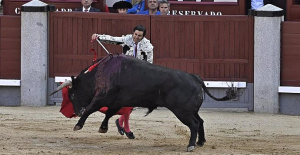 The Community will provide facilities and support to the Bullfighting Prize with the help of the Toro de Lidia Foundation
The Community will provide facilities and support to the Bullfighting Prize with the help of the Toro de Lidia Foundation Page will contact the bullfighting sector to create, from C-LM, Bullfighting Awards that will have national reach
Page will contact the bullfighting sector to create, from C-LM, Bullfighting Awards that will have national reach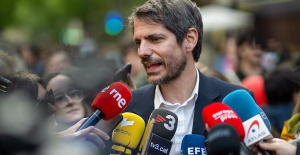 Urtasun, on eliminating the National Bullfighting Award: "The majority of Spaniards support the decision I have made"
Urtasun, on eliminating the National Bullfighting Award: "The majority of Spaniards support the decision I have made"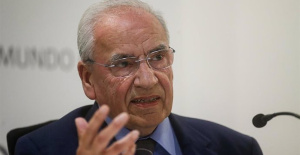 Alfonso Guerra sees Sánchez in an "autocratic" drift and accuses him of generating division "between the two Spains"
Alfonso Guerra sees Sánchez in an "autocratic" drift and accuses him of generating division "between the two Spains" How Blockchain in being used to shape the future
How Blockchain in being used to shape the future Not just BTC and ETH: Here Are Some More Interesting Coins Worth Focusing on
Not just BTC and ETH: Here Are Some More Interesting Coins Worth Focusing on The Generalitat calls for aid worth 4 million to promote innovation projects in municipalities
The Generalitat calls for aid worth 4 million to promote innovation projects in municipalities UPV students design an app that helps improve the ventilation of homes in the face of high temperatures
UPV students design an app that helps improve the ventilation of homes in the face of high temperatures Ivace and promotes a less invasive device for the early detection of prostate cancer
Ivace and promotes a less invasive device for the early detection of prostate cancer Valencia unanimously approves the ordinance to allocate spaces to test innovative initiatives
Valencia unanimously approves the ordinance to allocate spaces to test innovative initiatives A million people demonstrate in France against Macron's pension reform
A million people demonstrate in France against Macron's pension reform Russia launches several missiles against "critical infrastructure" in the city of Zaporizhia
Russia launches several missiles against "critical infrastructure" in the city of Zaporizhia A "procession" remembers the dead of the Calabria shipwreck as bodies continue to wash up on the shore
A "procession" remembers the dead of the Calabria shipwreck as bodies continue to wash up on the shore Prison sentences handed down for three prominent Hong Kong pro-democracy activists
Prison sentences handed down for three prominent Hong Kong pro-democracy activists ETH continues to leave trading platforms, Ethereum balance on exchanges lowest in 3 years
ETH continues to leave trading platforms, Ethereum balance on exchanges lowest in 3 years Investors invest $450 million in Consensys, Ethereum incubator now valued at $7 billion
Investors invest $450 million in Consensys, Ethereum incubator now valued at $7 billion Alchemy Integrates Ethereum L2 Product Starknet to Enhance Web3 Scalability at a Price 100x Lower Than L1 Fees
Alchemy Integrates Ethereum L2 Product Starknet to Enhance Web3 Scalability at a Price 100x Lower Than L1 Fees Mining Report: Bitcoin's Electricity Consumption Declines by 25% in Q1 2022
Mining Report: Bitcoin's Electricity Consumption Declines by 25% in Q1 2022 Oil-to-Bitcoin Mining Firm Crusoe Energy Systems Raised $505 Million
Oil-to-Bitcoin Mining Firm Crusoe Energy Systems Raised $505 Million Microbt reveals the latest Bitcoin mining rigs -- Machines produce up to 126 TH/s with custom 5nm chip design
Microbt reveals the latest Bitcoin mining rigs -- Machines produce up to 126 TH/s with custom 5nm chip design Bitcoin's Mining Difficulty Hits a Lifetime High, With More Than 90% of BTC Supply Issued
Bitcoin's Mining Difficulty Hits a Lifetime High, With More Than 90% of BTC Supply Issued The Biggest Movers are Near, EOS, and RUNE during Friday's Selloff
The Biggest Movers are Near, EOS, and RUNE during Friday's Selloff Global Markets Spooked by a Hawkish Fed and Covid, Stocks and Crypto Gain After Musk Buys Twitter
Global Markets Spooked by a Hawkish Fed and Covid, Stocks and Crypto Gain After Musk Buys Twitter Bitso to offset carbon emissions from the Trading Platform's ERC20, ETH, and BTC Transactions
Bitso to offset carbon emissions from the Trading Platform's ERC20, ETH, and BTC Transactions Draftkings Announces 2022 College Hoops NFT Selection for March Madness
Draftkings Announces 2022 College Hoops NFT Selection for March Madness





